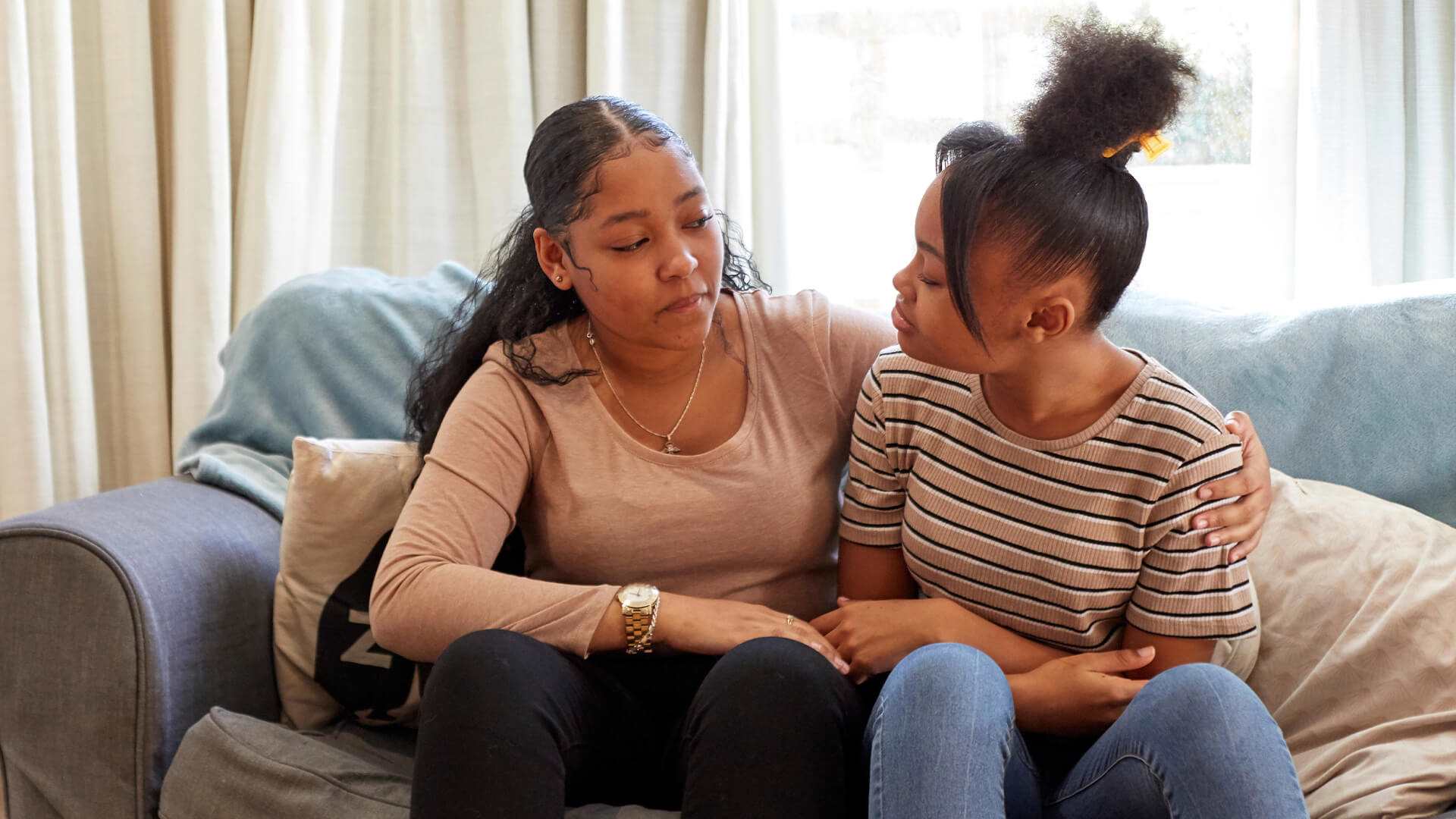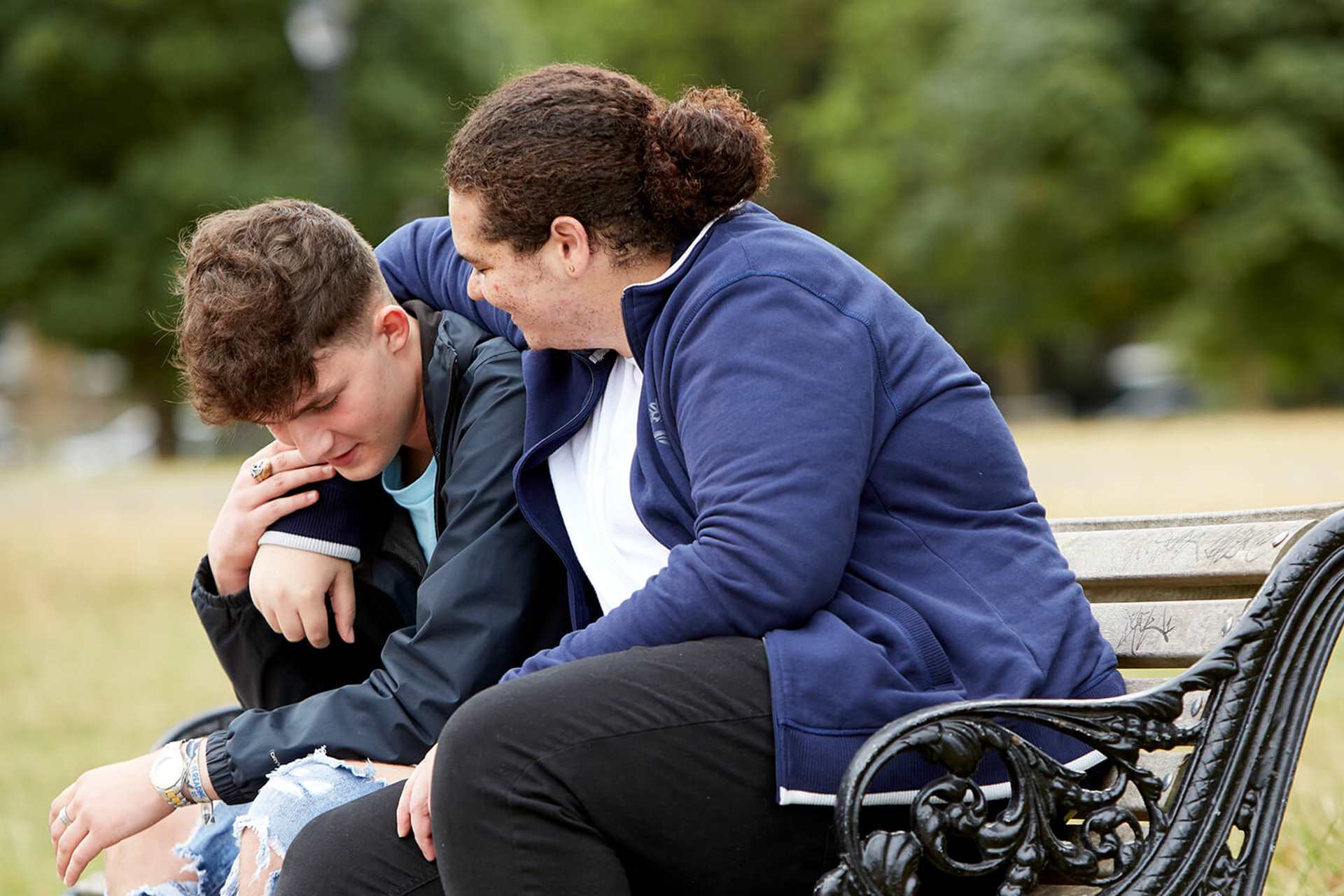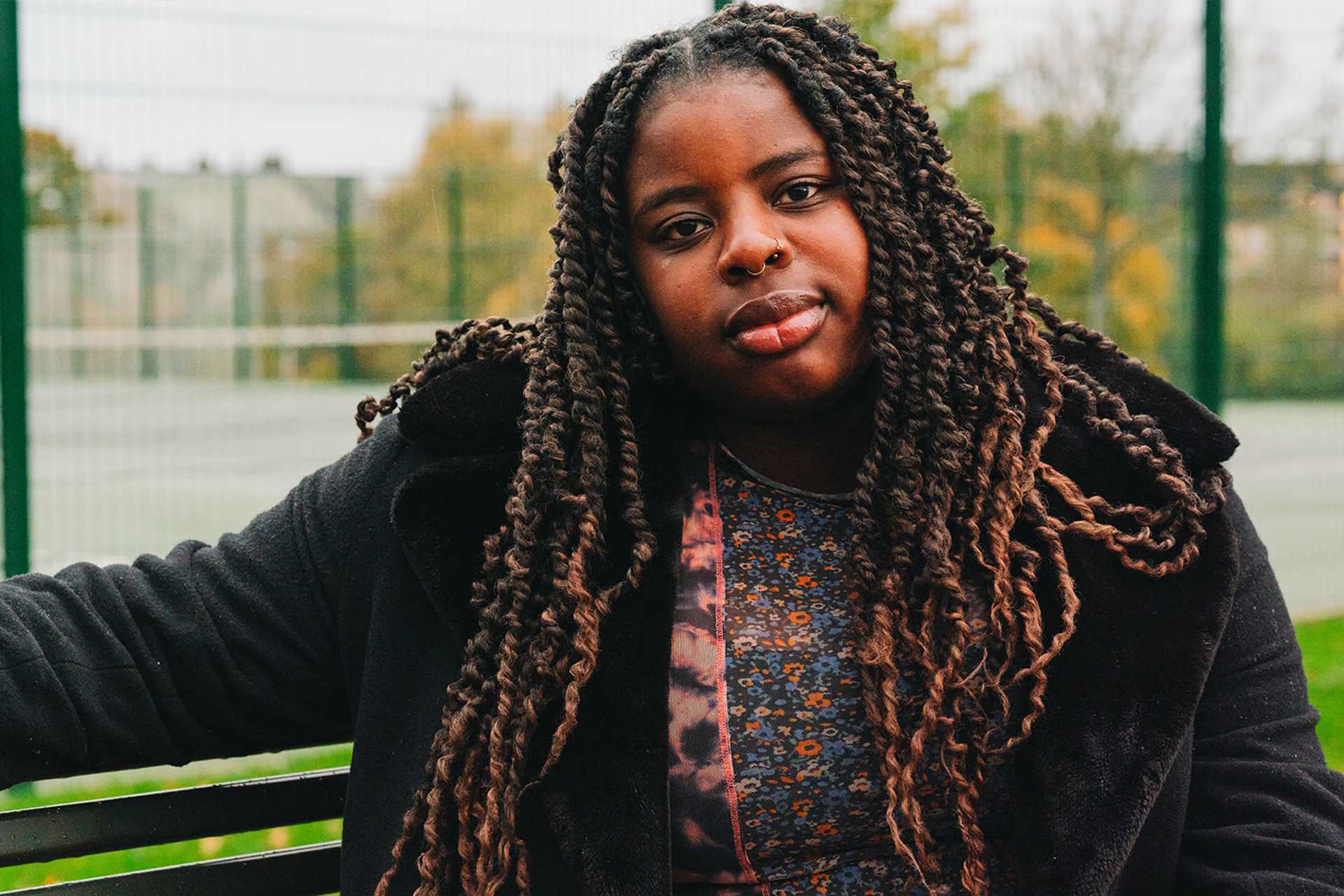Topics mentioned: eating problems, supporting a friend with their mental health
About: It can be really difficult to see a friend struggling with an eating disorder and not know how to help. Beth, 15, shares her tips for supporting a friend.
If you have a friend who is struggling with an eating disorder, it can be incredibly hard on both of you in the friendship.
It is important to remember that opening up about an eating disorder can be a very difficult and scary thing to do. Eating disorders usually develop on a foundation of secrecy and control, and some people, although they shouldn’t, may see their condition as embarrassing or a weakness. So if your friend talks to you about their eating disorder, it is because they really trust you.
Of course, you do not have to change the way you act around your friend or endlessly worry about upsetting them, but try to make sure that you are considerate when talking about things like food and exercise.
It is important to remember that opening up about an eating disorder can be a very difficult and scary thing to do.
Tips for helping your friend
-
Try not to mention skipping meals
By talking about how little you ate, it may trigger your friend’s competitive behaviour, which is common within eating disorders. They may try to eat less, or feel greedy and that they are eating too much. Eating disorders can also trick you into not understanding how much is sufficient to eat, so people in recovery from an eating disorder can look to others for what is a normal amount to eat.
-
Don’t make jokes about how much your friend is eating
Although it may seem like a harmless joke, your friend is probably following a difficult meal plan or perhaps trying a fear food that is a challenge for them. Even though your friend knows that you are joking, they may be insecure and uncertain about eating (especially in public) and this may possibly lead them to feel self-conscious eating around you.
Even though your friend knows that you are joking, they may be insecure and uncertain about eating (especially in public).
-
If you can, don’t repeatedly talk about diet culture
Even though you are not directly talking about your friend, constantly making comments about feeling fat and talking about dieting and exercising can lead your friend to question whether they need to diet or lose weight. Remember there is no ‘quick fix’ for eating disorders and it can take years for somebody to get into recovery. Just because your friend may have been discharged, or seems to be eating, this does not necessarily mean they are 100% better.
-
Remember, they are the same person you became friends with
Although they may have an eating disorder, this has not changed who they are or how close you are as friends. Sometimes eating disorders can lead people to push away the people they care about the most, maybe out of fear of worrying you or somebody finding out. However, now your friend is recovering, they need your support more than ever, as it can be an extremely difficult process.
-
Remember that mealtimes can be hard
Even what may seem the simplest task, such as eating a sandwich, can be very difficult and draining for a person recovering from an eating disorder. So if your friend seems distant or grumpy over food, don’t get offended or angry as I promise you they do not mean it and will likely be extremely apologetic afterwards. Instead, try to distract them by making them laugh or talking about something exciting you are looking forward to together.
Just because your friend may have been discharged, or seems to be eating, this does not necessarily mean they are 100% better.
Remember your friend does not need you to fully understand their situation, they just need you to support them and be there for them.
Remember your friend does not need you to fully understand their situation, they just need you to support them and be there for them.
Telling an adult
If you see your friend restricting at mealtimes, or they seem to be obsessing over food and exercise, you don’t have to confront them about it yourself. In fact, if you were to, they may deny it and attempt to hide it even more. Instead, tell a responsible adult that your friend trusts (e.g. a parent or teacher) that you think something might be wrong.
Remember that by telling an adult that you think there might be a problem, you are not being a bad friend - in fact, you are being the best friend you could possibly be by helping them and spotting the signs of a relapse early before it spirals out of control. Even if your friend does not see you helping them as a good thing immediately, I promise when they begin to recover they will really appreciate it.
Even if your friend does not see you helping them as a good thing immediately, I promise when they begin to recover they will really appreciate it.
If you make a mistake or say the wrong thing, don’t worry. The important thing is that you try to be there for your friend. They will appreciate this more than you can know.
More information and advice
We have tips and advice to help you find the support you need. Take a look at our guides.
Where to get help
However you're feeling, there are people who can help you if you are struggling. Here are some services that can support you.
-
Beat
Offers information and support for anybody affected by eating disorders.
One-to-one web chat available. They also run a range of online support groups, which are all fully moderated and anonymous.
Enter your postcode in the HelpFinder to see what eating disorder support is available in your area.
View their information on helpline accessibility and confidentiality.
- Opening times:
- 365 days a year - weekdays (9am - 8pm); weekends (4pm - 8pm)
-
Shout
Text SHOUT to 85258.
Shout provides free, 24/7 text support for young people across the UK experiencing a mental health crisis.
All texts are answered by trained volunteers, with support from experienced clinical supervisors.
Texts are free from EE, O2, Vodafone, 3, Virgin Mobile, BT Mobile, GiffGaff, Tesco Mobile and Telecom Plus.
Texts can be anonymous, but if the volunteer believes you are at immediate risk of harm, they may share your details with people who can provide support.
- Opening times:
- 24/7






